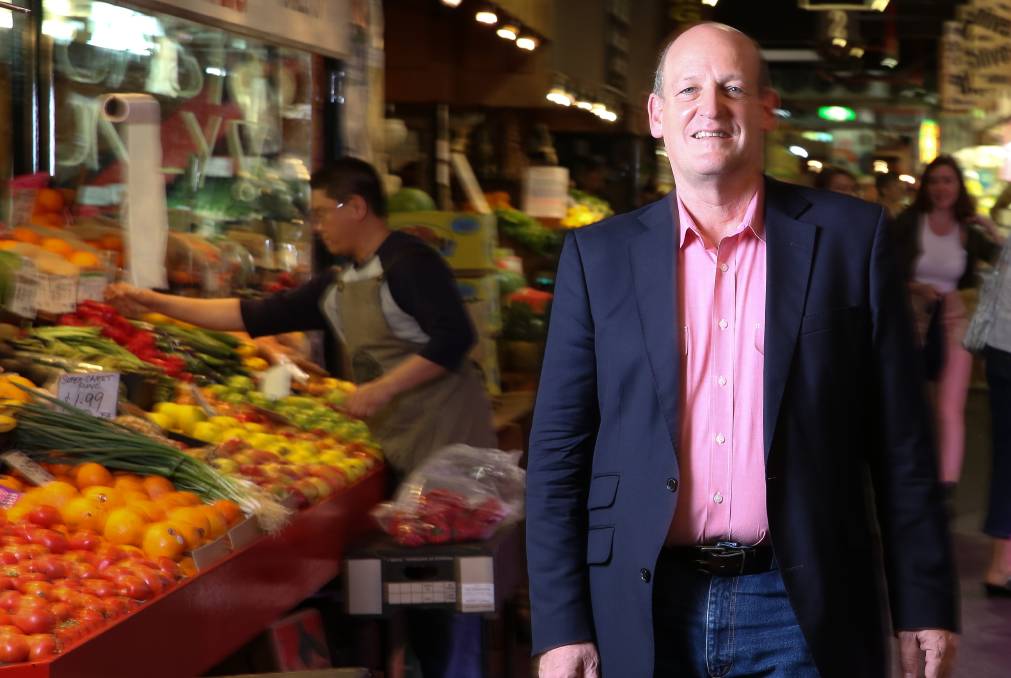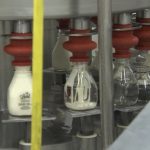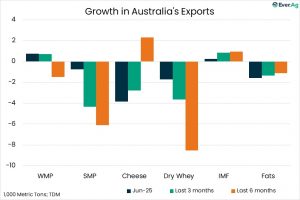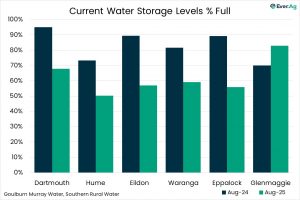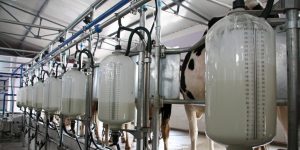
Welcome to business as usual for Australian agriculture, where the new reality is dealing with all these issues simultaneously, every day.
How we deal with this new normal is the real challenge for Australian agriculture as the industry aims to increase production.
This year marked the first year on the road to the 2030 target to reach $100 billion in annual production.
Here’s the real twist. It won’t be farmers who drive this growth – it will be everyone else along agriculture’s supply chain
– Mark Allison
A general estimate would suggest 20 per cent of the gains will be made through a mix of value adding and the continued strength of niche production such as plant proteins, nuts and citrus, among others.
Meanwhile, the bulk of the growth in productivity, the remaining 80 per cent, will come from the big hitters – red meat and grain.
Here, commodity markets compete on a minimum acceptable quality and lowest cost production.
It’s all about supply chain efficiency.
And here’s the real twist. It won’t be farmers who drive this growth – it’ll be everyone else along agriculture’s supply chain.
The increases will come from breeding and genetics, processing and labour efficiencies, and transport capabilities namely our ability to get produce out of the paddock and into markets around the globe faster and cheaper than we did it this year.
Clearly there are challenges in the paddocks that must be tackled in the year ahead.
Old-fashion farming was about being at the whim of the environment and the skies.
Modern agriculture is about controlling the controllables, about industry restructure with planning around sustainability and productivity at the heart of every business plan.
We must also change the narrative around government support in a crisis.
Any support must be made for authentic business restructure to drive efficiency, productivity and sustainability.
But the job of $40 billion in growth cannot be left to farmers or fragmented farmer and commodity groups alone.
It must come from a combined effort.
In early 2020, Agribusiness Australia will invite the heads of Australia’s biggest agriculture companies to attend a bipartisan meeting to reset Australian agribusiness and to help solve some of the biggest issues agriculture faces.
This will include chief executives from the likes of Australian Agricultural Company, Bega Cheese, CBH Group, Nufarm, Costa, Tassal, Nutrien, Ingham’s, Select Harvests, Webster, Olam GrainCorp, Incitec Pivot, A2 Milk Company, Treasury Wine Estates, Wellard, Australian Dairy Farms and Elders, as well as supermarkets.
With such a coalition of powerful people willing to put their own interests aside to address the big issues facing agriculture – national infrastructure, animal welfare, the rise of competing foreign markets, energy and water – the possibilities are without boundaries.
Mark Allison is managing director of Elders and president of Agribusiness Australia.
